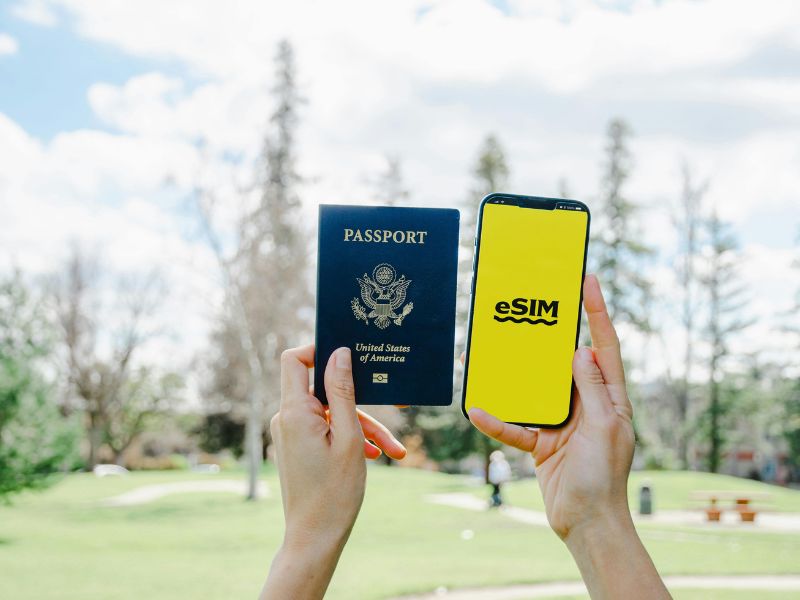Canada is renowned for its welcoming approach to immigration, offering a variety of pathways for individuals to start a new life in one of the most prosperous and diverse countries in the world. Among these pathways, Canadian immigration sponsorship stands out as a cornerstone of the nation’s commitment to family reunification. This program allows Canadian citizens and permanent residents to sponsor their loved ones, giving them the opportunity to become permanent residents and build a future together in Canada.
Whether you’re seeking to bring your spouse, children, parents, or even extended relatives to Canada, understanding the sponsorship process is essential. However, navigating the legal requirements, financial responsibilities, and application procedures can be challenging without proper guidance. In this article, we’ll break down everything you need to know about Canadian immigration sponsorship, including who qualifies as a sponsor, who can be sponsored, the types of sponsorship programs available, and the steps required to successfully complete the process. Whether you’re starting your sponsorship journey or considering it for the future, this guide will provide you with all the essential details to ensure a smooth and informed experience.
Canadian Immigration Sponsorship is a program under Canada’s immigration system that allows Canadian citizens or permanent residents to sponsor certain individuals to become permanent residents of Canada. The program is designed to reunite families and provide a pathway for loved ones to live, work, and thrive in Canada. Sponsorship is governed by Immigration, Refugees, and Citizenship Canada (IRCC) and is an integral part of Canada’s family reunification goals.
Through sponsorship, the sponsor takes on financial and social responsibility for the individual being sponsored, ensuring they have the necessary support to settle in Canada without requiring government social assistance. This includes basic needs such as housing, food, and medical care that may not be covered by public health insurance.
Sponsorship primarily applies to close family members such as spouses, common-law partners, dependent children, parents, and grandparents. In rare cases, sponsorship may also extend to other relatives under specific conditions. By enabling families to reunite, this program helps create a sense of belonging and stability for newcomers while fostering Canada’s multicultural and inclusive society.
To be a sponsor under the Canadian Immigration Sponsorship program, an individual must meet specific criteria set by Immigration, Refugees, and Citizenship Canada (IRCC). These requirements are designed to ensure that the sponsor can provide adequate support to the person being sponsored and fulfill their obligations throughout the sponsorship period. Below are the key criteria for eligibility:
Eligibility Criteria for Sponsors
Canadian Status
- The sponsor must be either:
- A Canadian citizen,
- A permanent resident of Canada, or
- A person registered in Canada as an Indian under the Canadian Indian Act.
Minimum Age
- The sponsor must be at least 18 years old.
Residency
- If the sponsor is a permanent resident, they must reside in Canada at the time of submitting the sponsorship application and throughout the sponsorship process.
- If the sponsor is a Canadian citizen living outside Canada, they must demonstrate an intent to reside in Canada once the person they are sponsoring becomes a permanent resident.
Financial Capability
- The sponsor must prove that they have enough financial resources to support the sponsored person and meet the minimum necessary income (MNI) requirements, particularly for categories like parent or grandparent sponsorship.
- Sponsors must agree to financially support the sponsored individual for the duration of the sponsorship undertaking.
Not Receiving Social Assistance
- Sponsors must not be receiving social assistance for reasons other than disability.
Not in Default of Previous Obligations
- The sponsor cannot be in default of:
- A previous sponsorship agreement, where the sponsored person required social assistance during the sponsorship period.
- An immigration loan, performance bond, or court-ordered support payments (e.g., alimony or child support).
No Criminal Record
- The sponsor must not have been convicted of certain offenses, particularly those involving violence or crimes against a family member.
Not Bankrupt
Sponsors must not be undischarged bankrupts.
Other Factors
- Sponsors must not be under a removal order if they are permanent residents.
- The sponsor must comply with any previous undertakings they’ve signed.
Who Cannot Be a Sponsor?
An individual cannot sponsor someone if they:
- Are currently incarcerated.
- Have been convicted of violent crimes, sexual offences, or crimes against a family member.
- Have previously failed to meet financial obligations for a sponsored individual.
- Are under a removal order from Canada.
- Do not meet the financial requirements for sponsorship in cases where it applies.
What is the Sponsor’s Role?
The sponsor is responsible for:
- Providing financial support for the sponsored individual, ensuring they do not need to rely on government social assistance.
- Ensuring that the basic needs of the sponsored person are met, such as housing, food, and medical care not covered by public health insurance.
The sponsor must sign a legally binding sponsorship undertaking, which outlines their commitment to support the individual financially for a specific period of time, depending on the relationship with the sponsored person.
Who Can Be Sponsored?
Under the Canadian Immigration Sponsorship program, sponsorship is primarily designed to reunite families by allowing Canadian citizens and permanent residents to bring their loved ones to Canada as permanent residents. The program defines specific categories of individuals who can be sponsored, with eligibility based on the relationship to the sponsor and the fulfillment of certain conditions. Below is an overview of who can be sponsored under this program.
Eligible Individuals for Sponsorship
Spouse or Common-Law Partner
- A legally married spouse.
- A common-law partner who has lived with the sponsor in a conjugal relationship for at least 12 consecutive months.
- A conjugal partner (a person outside Canada in a long-term relationship with the sponsor but unable to live together due to immigration barriers or other legal restrictions).
Key Requirements:
- The relationship must be genuine and not entered into primarily for immigration purposes.
- Proof of the relationship, such as marriage certificates, shared financial responsibilities, or communication records, must be provided.
Dependent Children
- A child under the age of 22 who is not married or in a common-law relationship.
- A child over the age of 22 who is financially dependent on the sponsor due to a physical or mental condition.
Key Requirements:
- Proof of the parent-child relationship (e.g., birth certificate or adoption papers).
- If applicable, evidence of the child’s dependency on the sponsor due to a medical condition.
Parents and Grandparents
- Canadian citizens and permanent residents can sponsor their parents and grandparents under the Parent and Grandparent Sponsorship Program (PGP).
Key Requirements:
- The sponsor must meet specific income requirements to demonstrate financial ability to support their parents or grandparents.
- This program operates under a lottery system, and only a limited number of applications are accepted each year.
Orphaned Relatives
- Orphaned brothers, sisters, nephews, nieces, or grandchildren under the age of 18, who are:
- Unmarried,
- Not in a common-law relationship.
Key Requirements:
- The individual must be fully orphaned, meaning both parents have passed away.
Adopted Children
- Children adopted through domestic or international adoption processes can also be sponsored.
Key Requirements:
- The adoption must comply with both Canadian and the child’s home country’s legal requirements.
- Proof of a genuine parent-child relationship must be submitted.
Other Relatives (Under Exceptional Circumstances)
- In rare cases, sponsors may bring other relatives to Canada if they have no living family members who can be sponsored under the program.
- This includes a relative of any age or relationship if the sponsor has no spouse, partner, child, parent, grandparent, sibling, aunt, uncle, niece, or nephew who is a Canadian citizen, permanent resident, or eligible to be sponsored.
Who Cannot Be Sponsored?
The following individuals are not eligible for sponsorship:
- A spouse, partner, or child where the sponsor cannot prove a genuine relationship.
- Parents or grandparents who cannot meet the financial requirements under the Parent and Grandparent Sponsorship Program.
- Relatives who are inadmissible to Canada due to criminality, security concerns, or medical issues.
- A spouse or partner previously sponsored by the same sponsor within the past five years.
The Sponsorship Process: A Step-by-Step Guide
The sponsorship process for Canadian immigration involves multiple stages, from ensuring eligibility to submitting an application and awaiting approval. Whether you’re sponsoring a spouse, child, parent, or grandparent, understanding the steps involved is crucial for a successful application. Below is a detailed guide to the process.
Confirm Eligibility
Before starting the sponsorship process, both the sponsor and the person being sponsored must meet the eligibility criteria set by Immigration, Refugees, and Citizenship Canada (IRCC).
Sponsor Requirements:
- Must be a Canadian citizen, permanent resident, or registered Indian under the Canadian Indian Act.
- Must meet financial and residency requirements (depending on the type of sponsorship).
Sponsored Individual Requirements:
- Must be an eligible family member (spouse, partner, child, parent, grandparent, or other qualified relative).
- Must pass medical, criminal, and background checks.
Gather Required Forms and Documents
The application package depends on the category of sponsorship (spouse, child, parent, etc.). The IRCC website provides detailed application guides and checklists. The sponsor and the person being sponsored must complete their respective parts of the application.
Documents for Sponsors:
- Proof of Canadian citizenship, permanent residency, or Indian status.
- Proof of income (for financial requirements, if applicable).
- Signed sponsorship undertaking and agreement forms.
Documents for Sponsored Individuals:
- Valid passport or travel document.
- Birth certificates, marriage certificates, or proof of relationship.
- Police clearance certificates.
- Medical examination results.
Submit the Sponsorship Application
The sponsor submits the complete application to the IRCC. Depending on the type of sponsorship, the package will include:
- Sponsorship Application: Demonstrates that the sponsor meets all eligibility requirements.
- Permanent Residence Application: Completed by the person being sponsored.
Both forms must be submitted together to IRCC for review. Applications can now be submitted online through the IRCC portal, though some categories still allow paper-based submissions.
Application Review and Processing
Once the application is received, IRCC begins the review process.
Initial Review (Sponsorship Approval):
- IRCC will first review the sponsor’s application to ensure eligibility.
- If the sponsor is approved, IRCC proceeds with assessing the permanent residence application for the sponsored individual.
Background and Security Checks:
- Sponsored individuals must provide police clearance certificates from every country they have lived in for six months or more since the age of 18.
- IRCC conducts security checks to ensure the individual does not pose a threat to Canada.
Medical Examination:
- Sponsored individuals must undergo a medical examination by an IRCC-approved panel physician.
- This ensures the individual does not have a medical condition that could place excessive demand on Canada’s healthcare system.
Decision on the Application
After reviewing the application, IRCC will make a decision:
- Approval: If the application is approved, the sponsored individual will be issued a permanent residence visa.
- Refusal: If the application is denied, IRCC will provide reasons for the decision, and the sponsor may appeal in certain cases.
Arrival and Permanent Residency
For sponsored individuals outside Canada, they will receive a Confirmation of Permanent Residence (COPR) document and their visa. Upon arriving in Canada:
- They must present the COPR to an immigration officer at the port of entry.
- After landing, they officially become permanent residents.
For those already in Canada (inland sponsorship), the sponsored individual may need to attend an interview with IRCC before their permanent residency is finalized.
Conclusion
Canadian immigration sponsorship is a cornerstone of the nation’s commitment to family reunification, allowing citizens and permanent residents to bring their loved ones to Canada to build a life together. While the process may seem complex, understanding the eligibility requirements, application steps, and responsibilities involved can significantly ease the journey.
Whether you’re sponsoring a spouse, dependent child, parent, or grandparent, careful preparation is key. Providing accurate documentation, meeting financial obligations, and following IRCC guidelines will help ensure a smooth and successful application. For sponsors and sponsored individuals alike, this process is more than just paperwork—it’s an opportunity to strengthen family ties and contribute to Canada’s diverse and inclusive society.
By taking the time to understand the sponsorship process, you’re not only reuniting with loved ones but also helping them establish a secure and prosperous future in one of the world’s most welcoming countries. With determination and attention to detail, the dream of reuniting with family in Canada can become a reality.






